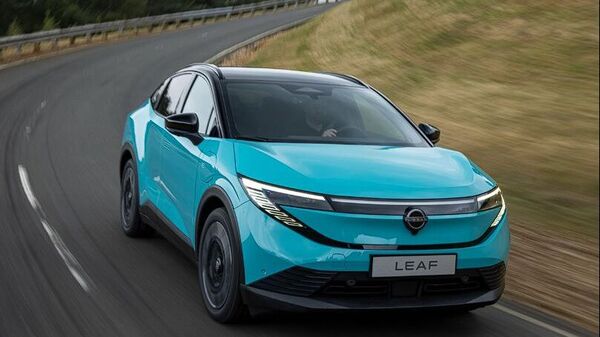Nissan Leaf Gets Major Makeover in Bid to Revive Electric Vehicle Sales
Nissan has given its pioneering electric vehicle, the Leaf, a significant overhaul, unveiling the third generation of the model with major upgrades in design and performance. The new Leaf EV is part of Nissan’s Re:Nissan strategy, aimed at reestablishing the brand as a leader in the electric vehicle market.
The latest Leaf has transformed from its original compact hatchback form into a compact SUV or crossover utility vehicle, mirroring the global trend towards ‘truckification’ of car markets. It bears a resemblance to Nissan’s larger crossover, the Ariya. The new model boasts a range of up to 487 kilometers on a full charge, thanks to its 75 kWh battery pack. This pack is capable of producing 214 bhp peak power and 354 Nm of maximum torque through its front-wheel drive electric motor.

The new Leaf features a dual charging port, allowing for fast charging at up to 150 kW. Under ideal conditions, it can charge from 10 to 80 percent in just 35 minutes. Despite its new utility vehicle guise, the Leaf is currently only available with a front-wheel drive setup, with no all-wheel drive option.
Nissan’s decision to launch the new Leaf comes at a challenging time for the global electric vehicle market, which has seen a slowdown in growth. Many manufacturers have shifted their strategies or postponed EV launches in response. Analysts have expressed concerns that the timing might be unfavorable for Nissan, given factors like tariff wars, supply chain disruptions, and the rollback of EV subsidies by the US government.
“If the new Leaf doesn’t sell, it will mean big trouble for Nissan,” said Koji Endo, a financial analyst at SBI Securities, as quoted by Bloomberg. Despite these challenges, Nissan President and CEO Ivan Espinosa remains optimistic, stating that the new Leaf is crucial to the company’s Re:Nissan plan. “The Nissan Leaf reflects our commitment to innovation and sustainability,” he said.
The original Leaf, introduced by former Nissan chief Carlos Ghosn, played a significant role in popularizing electric vehicles. Despite Nissan’s recent troubles, the company has sold nearly 700,000 Leaf EVs. The new generation aims to continue this legacy with its improved performance, stylish design, and advanced technology, inviting consumers to embrace an EV lifestyle.
As the electric vehicle market continues to evolve, the success of the new Leaf will be crucial for Nissan’s future in the EV segment. With its enhanced capabilities and design, the Leaf is poised to face stiff competition in a changing automotive landscape.


